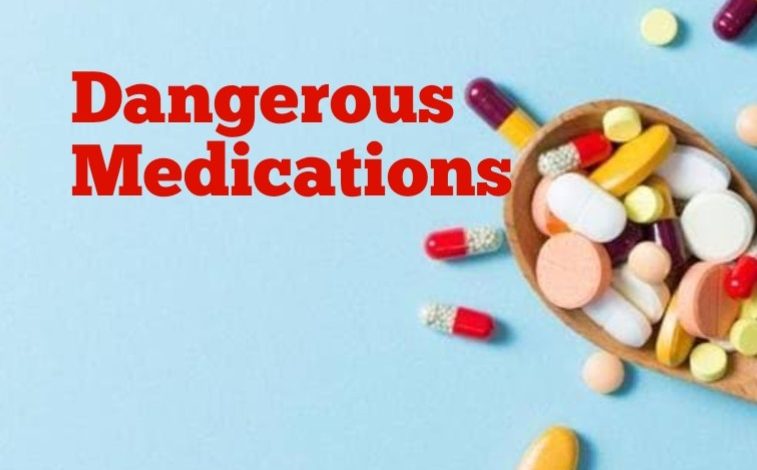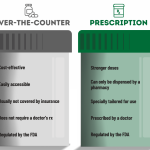Top 20 Most Dangerous Medications You Should Know

Medicines are substances or compounds that are used to diagnose, treat, cure, or prevent diseases or medical conditions. They can come in various forms, such as tablets, capsules, syrups, creams, injections, or inhalers. Medicines are developed through extensive research, testing, and regulatory processes to ensure their safety, efficacy, and quality.
Medications, when used appropriately and as prescribed by healthcare professionals, are generally safe and intended to help treat, manage, or prevent diseases. However, like any medical intervention, there can be risks and potential side effects associated with medications. In rare cases, medication errors, adverse reactions, or allergic responses can occur, which can lead to severe complications or, in extreme cases, fatalities.
Some medications have a narrow therapeutic range as a result they require careful monitoring of their blood levels to ensure they remain within a specific range to be effective and safe. If the blood levels of these medications go too low, they may be ineffective, while levels that are too high can lead to toxicity and potentially life-threatening adverse effects. Therefore, when not properly managed, medications with a narrow therapeutic range can increase the risk of mortality.
Some medications can be irritating or harmful if they come into direct contact with the eyes or mucous membranes (such as the nose or mouth). It is important to avoid touching your face or eyes after handling medications and to wash your hands thoroughly to prevent accidental transfer. In this article, we have listed the 20 dangerous medications you should handle with care.
It’s important to note that all medications should be handled with care and according to their specific instructions. However, here is a list of 20 medications that are considered potentially dangerous or require special precautions when handling:
1. Chemotherapy drugs: These medications, such as cisplatin and doxorubicin, are used in cancer treatment. They are highly toxic to cancer cells but can also harm healthy cells. Special precautions, such as wearing gloves and following strict handling procedures, are necessary to prevent exposure and minimize risks to healthcare professionals.
2. Opioid pain medications: Drugs like fentanyl and oxycodone are potent pain relievers. They carry a risk of respiratory depression and addiction. Proper storage, safe disposal, and careful administration are essential to prevent accidental ingestion or misuse.
3. Warfarin: Warfarin is an anticoagulant medication used to prevent blood clotting. It requires careful monitoring and dosage adjustments, as excessive amounts can increase the risk of bleeding. Patients taking warfarin should follow specific dietary guidelines and inform healthcare professionals of any medication changes.
4. Methotrexate: Methotrexate is used to treat cancer, rheumatoid arthritis, and other autoimmune conditions. It can be toxic in high doses and requires close monitoring of blood levels. It is crucial to follow the prescribed dosage and avoid pregnancy during its use, as it can cause birth defects.
5. Paracetamol: While commonly used as a pain reliever and fever reducer, excessive amounts of acetaminophen can cause liver damage. It is essential to follow the recommended dosage and avoid combining it with other medications containing acetaminophen.
6. Digoxin: Digoxin is used to treat heart conditions like heart failure and certain arrhythmias. It has a narrow therapeutic range, and excessive levels can be toxic, causing life-threatening cardiac arrhythmias. Regular blood level monitoring is necessary.
7. Insulin: Insulin is a hormone used in the management of diabetes. Improper storage or administration can lead to incorrect dosing, resulting in hypo- or hyperglycemia. Proper technique and adherence to prescribed dosage and storage guidelines are crucial.
8. Isotretinoin: Isotretinoin is a powerful medication used for severe acne. It can cause birth defects if taken during pregnancy and requires careful monitoring for potential adverse effects on the liver, cholesterol levels, and mental health.
9. Lithium: Lithium is used as a mood stabilizer for bipolar disorder. It has a narrow therapeutic range, and blood levels need to be closely monitored to avoid toxicity, which can affect the kidneys, thyroid, and the central nervous system.
10. Morphine: Morphine is a potent opioid used for severe pain relief, particularly in cancer and palliative care. It carries a risk of respiratory depression and can be habit-forming. Proper storage and disposal are essential to prevent unauthorized use.
11. Antiarrhythmic medications: Medications like amiodarone and disopyramide are used to treat irregular heart rhythms. They require careful monitoring of cardiac function, electrolyte levels, and potential interactions with other medications.
12. Immunosuppressants: Drugs such as cyclosporine and tacrolimus are used to suppress the immune system in organ transplant recipients and individuals with autoimmune diseases. They can increase the risk of infections and require regular monitoring of blood levels and kidney function.
13. Anticoagulants: Medications like warfarin and heparin are used to prevent blood clots. They require close monitoring to maintain the desired anticoagulant effect without increasing the risk of bleeding.
14. Antipsychotic medications: Drugs like haloperidol and clozapine are used to manage mental health conditions such as schizophrenia and bipolar disorder. They may have significant side effects and require careful monitoring for potential cardiac, neurological, or metabolic effects.
15. Antiretroviral drugs: These medications are used in the treatment of HIV/AIDS. They require strict adherence to dosing schedules and may interact with other medications. Regular monitoring of viral load and CD4 cell count is essential to assess treatment efficacy.
16. Anti-seizure medications: Medications like phenytoin and carbamazepine are used to manage epilepsy and other seizure disorders. They require regular monitoring of blood levels to ensure therapeutic effectiveness and minimize the risk of toxicity.
17. Benzodiazepines: Benzodiazepines like alprazolam and diazepam are used to treat anxiety and sleep disorders. They can be habit-forming and require caution when used long-term due to the risk of dependence and withdrawal symptoms.
18. Statins: Statins, such as atorvastatin and simvastatin, are used to manage high cholesterol levels. While generally safe, they can rarely cause muscle-related side effects and require regular liver function monitoring.
19. Corticosteroids: Medications like prednisone and dexamethasone (Xasten) are potent anti-inflammatory drugs used to treat a range of conditions. Prolonged use at high doses can have significant side effects, including immune suppression, bone loss, and adrenal suppression.
20. Antidepressant medications: Medications such as tricyclic antidepressants and selective serotonin reuptake inhibitors (SSRIs) are used to treat depression and other mood disorders. They require careful monitoring for potential side effects, including changes in mood, behavior, or suicidal thoughts.
It is crucial to note that the above medications, while potentially dangerous if not handled or used properly, are commonly prescribed by healthcare professionals to provide therapeutic benefits. Following the prescribed dosage, seeking regular medical monitoring, and adhering to safety instructions provided by healthcare professionals are essential for their safe and effective use.





